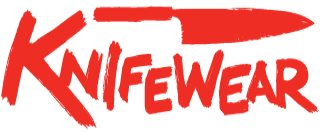Free shipping on orders over $100 - Excluding konro grills
Free shipping on orders over $100 - Excluding konro grills
Japanese Knives
Sharpening
Accessories
Which Binchotan Grade is Right for Me? Naoto's Guide to Binchotan Types
April 01, 2020 3 min read

If you’ve met me, you know I love cooking over charcoal. Japanese charcoal, called binchotan, is prized for its amazing quality and cooking properties. Because binchotan is made from natural materials and is crafted by experts, there are different grades available. Your specific application and budget will dictate which grade you buy. This guide will to help you understand binchotan grades, so you can make an informed decision. If you haven’t yet read our Bincho Basics blog, check it out first to get your bearings.
If you’re not from Japan, some Japanese names can be difficult to understand and fully comprehend, especially when it comes to something you don’t know much about, yet. So, I’ve answered our most commonly received questions about Binchotan.
Q: What is the difference between the types of binchotan you sell?
A: We supply four kinds, they are called "Han-Maru" "Ara-jo" "Wari" and “Nami
Han-Maru ("Half round” in English) - $30/Kg
When the raw wood is too thick to make charcoal, they split them into halves or quarters. The quality of this charcoal is great, it is very dense and it burns a very long time. Getting it started can be a challenge because of the density.
The dimensions are usually 2-4cm x 20+cm.
Ara-Jo ("rough, but excellent") - $25/Kg
This is a bit more uneven in size, but fairly dense. Because they are smaller than Han-maru, they are easier to get started, but the burn time is not as long.
Dimensions are 2-5cm x 6cm-20cm.
Wari (“to split”) - $25/Kg
The procedure to make these is the same as Han-Maru, but Wari is not as dense as Han-Maru and there may be some uneven or rough shaped pieces. Because it is not as dense as Han-Maru, it lights more easily but doesn’t burn as long.
Dimensions are 2-4cm x 20+cm
Nami (“regular”) - $25/Kg
This one is nice and small, and very dense. They are almost like a chopped version of komaru (see below). They do not last as long as others because of the smaller size, but they burn more cleanly.
Dimensions are 2-3cm x 5-10cm
Q: Are there any other grades of Binchotan, other than what you carry?
A: There are "Jo-Komaru", "Komaru", "Otsu-Komaru" and "Kozumi"
Jo-Komaru ("Excellent small round”) and Komaru ("Small Round")
These two types are made from whole wood, without splitting it, so they look like shrunken petrified wood. The only difference between the two is thickness, Jo-Komaru is 3-4cm in thickness where Komaru is 2-3cm. Both should be longer than 20cm.
They burn at a higher temperature and burn longer and the shape of charcoals are fantastic. Because of its quality this grade is very scarce, so we don’t usually stock it.
Otsu-Komaru ("Second Small Round")
These are basically the same as above, but not as dense and less consistent in shape. There may be some cracks in the charcoal and they do not burn as long, but they will get going faster.
Kozumi ("Small Charcoal")
This is the lowest ranked Binchotan. They are 2-6cm bits, and they are not as dense.
Binchotan is priced based on grade. This is how they rank from highest to lowest:
-Jo-Komaru
-Komaru
-Han-maru, Otsu-Komaru
-Wari, Aara-jo, Nami
-Kozumi
Q: Is this classification the same throughout the industry?
A: It’s pretty much the same everywhere, but Japanese charcoal is sorted by hand so there may be some variation.
Even if you get the longer sized binchotan, you can still break them into pieces. If you don’t want to get your hands dirty doing this, get Arajo or Nami bincho. I like Arajo because it lasts a long time, and fits in my medium konro very nicely. If you have a very big BBQ and plan on running it for several hours or for restaurant use, get Han-maru or Wari. I love the mix of Hanmaru and Arajo because Arajo gets it going faster and Hanmaru will burn longer.
I hope this helps you understand Japanese charcoal better, happy grilling!

Subscribe
Sign up to get the latest on sales, new releases and more …




















